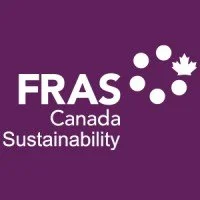Voluntary and mandatory ESG standards, frameworks, and laws are so interconnected that it can be tough to untangle what’s truly required. We are here to help.
ESG Regulatory Reporting Advisory Services
We help our clients prepare for current and future ESG disclosures and reporting requirements.
KERAMIDA’s expertise in the major ESG reporting standards, frameworks, and laws helps companies prioritize their actions and integrate climate into their business. Our team of legal, accounting, business, and engineering professionals assists clients with Sustainability and ESG compliance across the complex regulatory landscape.
Corporate Climate Compliance: What do companies need to do?
Determining what your company is required to report on can be challenging. We help companies ensure their disclosures comply with the evolving ESG regulatory requirements at the state, federal, and global levels, including:
EU Climate Regulations
California Climate Laws
Canadian Climate Disclosure Frameworks
Additional Requirements
Our team of experts provides:
Clear guidance and action steps for compliance with mandatory reporting obligations while building on any existing reporting with voluntary standards or frameworks
A Gap Analysis to help determine where you are within these specific actions
Regulatory interpretation tracking and roadmap to compliance
Checklist of action items your company needs for disclosure
Climate Regulations Training
ESG Regulatory Compliance Workshop
KERAMIDA’s custom four-hour workshop builds internal capacity and understanding of the requirements set forth in climate regulations, serving as the starting point for compliance.
KERAMIDA’s 4-hour Online Workshop includes:
Pre-workshop engagement with your team to understand the goals and capacity of your company, refine the agenda, develop a facilitation plan, and refine the facilitated activities
Workshop topics may include the requirements of the California Climate Laws and industry trends
Two KERAMIDA facilitated activities and outputs, including:
Identification of climate-related impacts, risks, and opportunities
Preparation of a mock climate-related financial risk disclosure
Closing round table discussion with our industry and technical experts
EU ESG Disclosure Regulations
CSRD Readiness and Reporting Consulting
The European Union's Corporate Sustainability Reporting Directive (CSRD) requires certain EU businesses to publish regular reports on their social and environmental risks and how their activities impact people and the environment. Businesses determine their impacts, risks, and opportunities by conducting a double materiality assessment, as required under CSRD. Additionally, CSRD requires certain businesses to disclose Scope 1, Scope 2, and Scope 3 greenhouse gas inventories at phased-in timelines and secure assurance for those inventories.
Businesses subject to CSRD also need to follow the EU Taxonomy which mandates that businesses make a determination as to the impacts of certain sustainable activities including:
Climate Change Mitigation
Sustainable Use and Protection of Water and Marine Resources
Transition to Circular Economy
Pollution Prevention and Control
Protection and Restoration of Biodiversity and Ecosystems
With a focus on aligning corporate sustainability reporting initiatives with business objectives, our team offers comprehensive guidance on CSRD regulatory compliance, risk assessment, and the identification of impacts, risks, and opportunities associated with enabling clients to foster sustainable practices that drive long-term value creation and stakeholder trust.
Our CSRD Compliance Services include:
Double Materiality Assessment
EU Taxonomy Navigation
Identification of Impacts, Risks, and Opportunities (IROs)
Highlighted Project Experience:
ED&F Man Commodities is one of the world’s leading providers of soft commodities with a range of products, including sugar, coffee, molasses, animal feed, and fish oils. KERAMIDA assisted ED&F Man with its inaugural TCFD disclosure and with the development of three individual Climate Action Plans for each of its Divisions: ED&F Man Liquid Products (MLP), ED&F Man Sugar, and ED&F Man Volcafe.
This Fortune 500 Client is one of the world’s largest producers of high-technology interconnect, sensor, and antenna solutions, with more than 90,000 employees globally. KERAMIDA assists the Client with its Sustainability Reporting and preparation for CSRD compliance, including Double Materiality Assessment, ESRS alignment, EU Taxonomy and Life Cycle Analysis, and CSRD reporting. We also assist the Client with its data collection and GHG reduction strategy.
This confidential Client is a global leader in infrastructure and agriculture solutions. KERAMIDA is assisting the Client with its Sustainability Reporting (voluntary reporting using GRI, SASB, and CDP), CSRD compliance, GHG data quality, and tracking. KERAMIDA is also facilitating in-person and virtual Executive Training, Regulatory Roadmap, and Strategic Planning workshops with the Client.
CBAM Compliance Services
The European Union’s Carbon Border Adjustment Mechanism (CBAM) is a policy aimed at addressing carbon leakage and ensuring a level playing field for industries subject to ambitious climate policies. CBAM seeks to impose a carbon price on imported goods based on their embedded carbon emissions, mirroring the costs faced by EU producers under the EU Emissions Trading System. This mechanism intends to prevent carbon leakage by discouraging the relocation of carbon-intensive industries to regions with less stringent climate regulations while promoting global climate action. CBAM aims to incentivize the adoption of cleaner technologies and practices both within and outside the European Union, contributing to the European Union’s commitment to achieving climate neutrality by 2050 and fostering a more sustainable global economy.
Our CBAM Consulting Services include:
Embodied Greenhouse Gas Emissions Calculations Support
CBAM Data Collection Assistance
CSDDD Compliance Services
The European Union’s Corporate Sustainability Due Diligence Directive (CSDDD or CS3D) was officially approved by the EU on May 24, 2024. CSDDD aims to foster sustainable and responsible corporate behavior in companies’ operations and across their global value chains. The directive targets in-scope companies to address environmental impacts and adverse human rights both inside and outside of Europe.
Our CSDDD Consulting Services include:
Developing Transition Plans for Climate Change Mitigation aligned with the Paris Agreement
Identification of Adverse Human Rights and Environmental Impacts
California ESG Disclosure Regulations
California SB 253 - Climate Corporate Data Accountability Act
California SB 253 requires companies, both publicly traded and private, doing business in California with annual revenue exceeding $1 billion to publicly disclose their Scope 1, Scope 2, and Scope 3 greenhouse gas (GHG) emissions.
California SB 261 - Climate-Related Financial Risk Act
California SB 261 requires both publicly traded and privately held companies doing business in California with annual revenue exceeding $500 million to release a public climate-related financial risk report every two years.
California AB 1305 - Voluntary Carbon Market Disclosures Business Regulation Act
California AB 1305 features separate disclosure requirements for organizations marketing and selling voluntary carbon offsets and organizations purchasing and using voluntary carbon offsets.
Canadian Climate Disclosure Frameworks
Canadian CSDS 1 and CSDS 2 Sustainability Disclosure Standards
Additional ESG Disclosure Requirements
IFRS S1 and S2 Sustainability Reporting Standards
IFRS S1 and S2 are the first sustainability disclosure standards issued by the International Sustainability Standards Board (ISSB). IFRS S1 requires businesses to disclose information about sustainability-related financial risks and opportunities that may affect the business. IFRS S2 is a topic-based standard that requires disclosures about the entity’s exposure to climate-specific risks and opportunities. The IFRS S1 and S2 standards are designed to be used together.
Multiple countries, including Australia, Canada, China, Japan, New Zealand, and Singapore, are either in the process of requiring disclosures or have already required disclosures aligned with IFRS S1 and IFRS S2.
Our IFRS S1 and S2 Consulting Services include:
IFRS S1 and IFRS S2 Disclosure Preparation
Highlighted Project Experience:
ED&F Man Commodities is one of the world’s leading providers of soft commodities with a range of products, including sugar, coffee, molasses, animal feed, and fish oils. KERAMIDA assisted ED&F Man with its inaugural TCFD disclosure and with the development of three individual Climate Action Plans for each of its Divisions: ED&F Man Liquid Products (MLP), ED&F Man Sugar, and ED&F Man Volcafe.
KERAMIDA is supporting this American multinational law firm with its inaugural TCFD Climate-related Financial Risk disclosure in preparation for compliance with CA SB 261. Our tasks include: Regulatory review and analysis, stakeholder workshops to understand and build capacity around climate-related financial risk disclosures, evaluation of the Client’s current status and progress towards “comply or explain” disclosures, and more.
This Client is an international financial services firm providing Private Wealth Management, Trust, Asset Management, Investment Banking, Capital Markets and Private Equity services. KERAMIDA is supporting the Client with its inaugural IFRS S2 disclosure in preparation for compliance with CA SB 261.
US SEC Climate Disclosure Rules
On April 4, 2024, the SEC paused the rules pending the outcome of litigation.
The United States Securities and Exchange Commission (SEC) recently adopted final rules to require registrants to disclose certain climate-related information in registration statements and annual reports. The final rules include a phased-in compliance period for all registrants, with the compliance date dependent on the registrant’s filer status and the content of the disclosure.
Our SEC Climate Rule Consulting Services include:
Assessment of climate-related risks and suggestions to mitigate these risks
Board and governance analysis related to oversight of climate-related risks and management’s role in managing material climate-related risks
Mock disclosure preparation
Highlighted Project Experience:
Related Projects:
Related Services:
KERAMIDA offers a wide variety of Greenhouse Gas (GHG) services to clients worldwide, including multi-facility industrial clients, industrial associations, law firms, and state organizations. Our experienced team of GHG experts provides carbon footprint evaluations, GHG inventories, GHG monitoring plans, and training.
Trusted for Verification and Assurance by Fortune 500 companies from a major U.S. stock market index and a global media & entertainment conglomerate to one of the largest U.S. steel producers and a world leader in marine recreation. KERAMIDA provides independent verification and assurance of GHG emissions for organizations across any industry in accordance with a variety of accepted standards, including ISO 14064-3 standards. KERAMIDA is a CDP Global Gold Verification Provider and an AA1000 Licensed Assurance Provider.

































